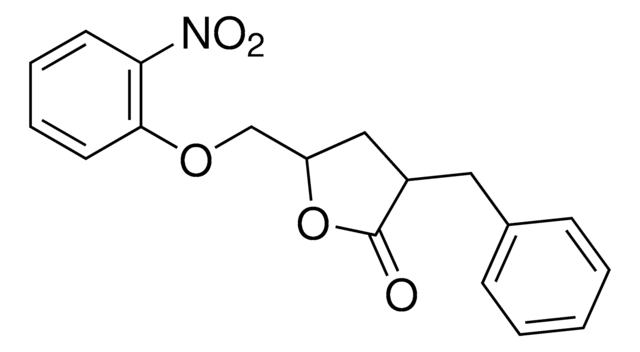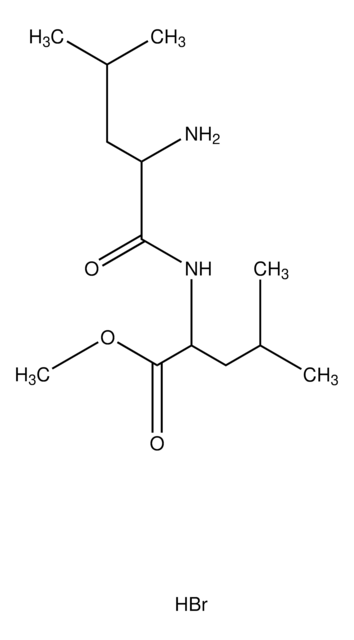SML0810
MHY1485
≥95% (HPLC)
Sinonimo/i:
4,6-Di-4-morpholinyl-N-(4-nitrophenyl)-1,3,5-triazin-2-amine
About This Item
Prodotti consigliati
Livello qualitativo
Saggio
≥95% (HPLC)
Forma fisica
powder
Colore
white to beige
Solubilità
DMSO: 2 mg/mL, clear (warmed)
Temperatura di conservazione
2-8°C
InChI
1S/C17H21N7O4/c25-24(26)14-3-1-13(2-4-14)18-15-19-16(22-5-9-27-10-6-22)21-17(20-15)23-7-11-28-12-8-23/h1-4H,5-12H2,(H,18,19,20,21)
MSSXBKQZZINCRI-UHFFFAOYSA-N
Applicazioni
- to study the effect of mammalian target of rapamycin mTOR signalling on in vitro O-GlcNAcylation
- to inhibit autophagy
- as a mTOR agonist to demonstrate that the O-linked N-acetylglucosamine transferase- RNA helicase p68 (OGT-DDX5) axis regulates colorectal cancer cell proliferation and metastasis
Azioni biochim/fisiol
Caratteristiche e vantaggi
Codice della classe di stoccaggio
11 - Combustible Solids
Classe di pericolosità dell'acqua (WGK)
WGK 3
Punto d’infiammabilità (°F)
Not applicable
Punto d’infiammabilità (°C)
Not applicable
Certificati d'analisi (COA)
Cerca il Certificati d'analisi (COA) digitando il numero di lotto/batch corrispondente. I numeri di lotto o di batch sono stampati sull'etichetta dei prodotti dopo la parola ‘Lotto’ o ‘Batch’.
Possiedi già questo prodotto?
I documenti relativi ai prodotti acquistati recentemente sono disponibili nell’Archivio dei documenti.
I clienti hanno visto anche
Articoli
We offer many products related to PKB/Akt for your research needs.
Cell cycle phases (G1, S, G2, M) regulate cell growth, DNA replication, and division in proliferating cells.
Apoptosis regulation involves multiple pathways and molecules for cellular homeostasis.
Il team dei nostri ricercatori vanta grande esperienza in tutte le aree della ricerca quali Life Science, scienza dei materiali, sintesi chimica, cromatografia, discipline analitiche, ecc..
Contatta l'Assistenza Tecnica.














